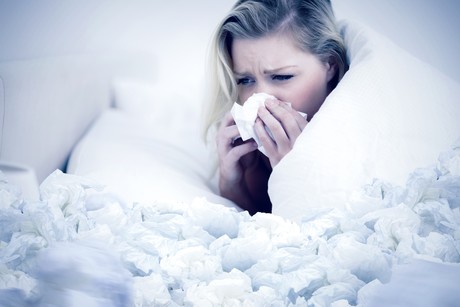Sickness caused by exposure to common chemicals

Exposure to common chemical products is causing illness among Australian workers, new research has shown.
The study, conducted by Anne Steinemann, Professor of Civil Engineering and Chair of Sustainable Cities at the University of Melbourne, was published in the journal Preventive Medicine Reports. Professor Steinemann is an international expert on environmental pollutants, air quality and health effects.
It found that almost one in five (18.9%) Australians report chemical sensitivity, with more than one-third medically diagnosed with Multiple Chemical Sensitivities (MCS).
In addition, 52.1% of Australians with MCS lost work days or a job in the past year due to illness from fragranced products in the workplace.
“Multiple Chemical Sensitivities is a serious disease that is often caused and worsened by exposure to petrochemical sources such as pesticides, solvents, new building materials and fragranced items,” Steinemann said.
“Even low-level exposure can inflict a range of adverse health effects such as migraines, breathing difficulties, cognitive impairment, seizures and asthma attacks.”
Using an online survey with a national random sample of 1098 people, the study found MCS is widespread in the Australian population, affecting an estimated one million adults nationwide, with chemical sensitivity affecting a further two million.
The study also found 74.6% of people with MCS are asthmatic, and 91.5% with MCS report health problems from fragranced products, such as air fresheners and deodorisers, laundry products, candles, cleaning supplies and personal care products. For 55.4% of people with MCS, the severity of these health problems can be disabling.
The results mirror Steinemann’s earlier research in the United States that found one in four Americans suffer from chemical sensitivity, prompting calls to reduce exposures to everyday chemical pollutants.
“While Australia is not yet at the same levels as the US, it appears we’re on the same pollution path,” Steinemann said.
She recommends choosing products without any fragrance, and implementing fragrance-free policies in workplaces, healthcare facilities, schools and other indoor environments.
“The products that are problematic for people with MCS are also major sources of air pollutants. Reducing your use and exposure to these products benefits not only your own and other people’s health, but also the environment,” she said.
New model Code of Practice published for managing silica dust risks
A new model Code of Practice for managing risks of respirable crystalline silica in the workplace...
SafeWork NSW inspectors to don body-worn video
To deter violence or aggression against SafeWork NSW inspectors, the NSW Government has commenced...
Oz-based PIP completes Honeywell PPE acquisition
Australian-based company Protective Industrial Products, Inc. has completed its acquisition of...








